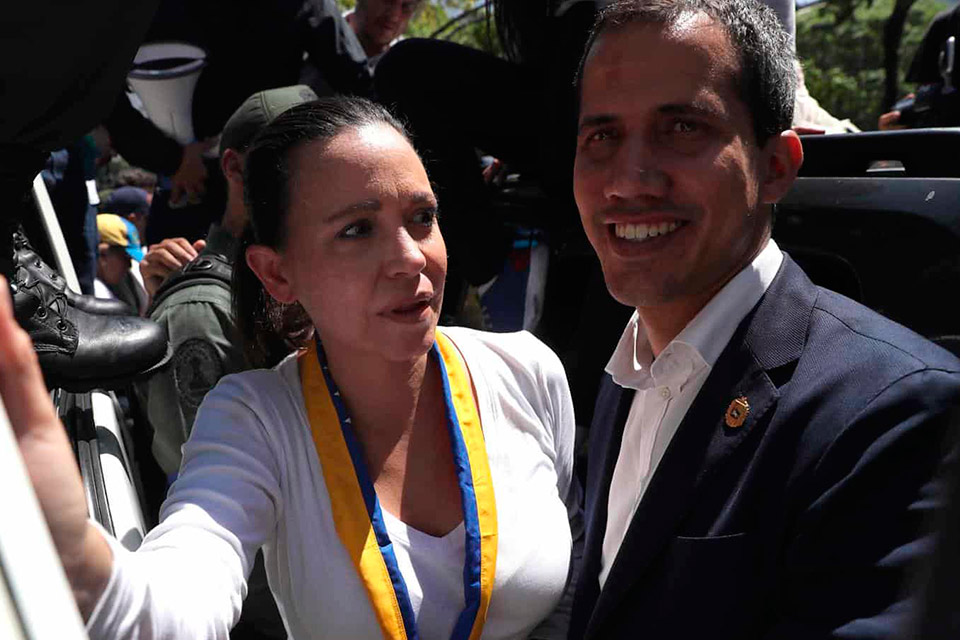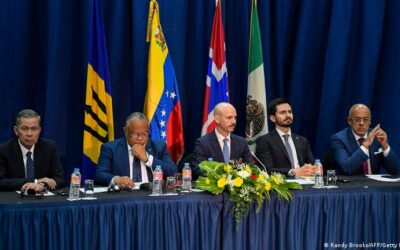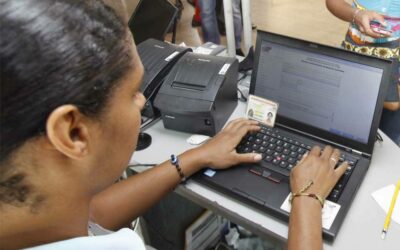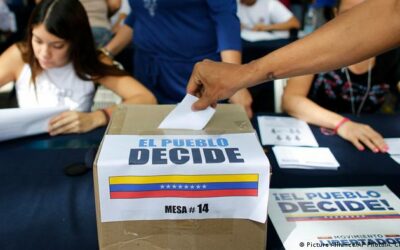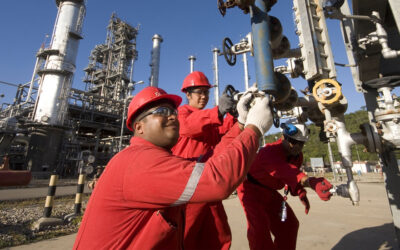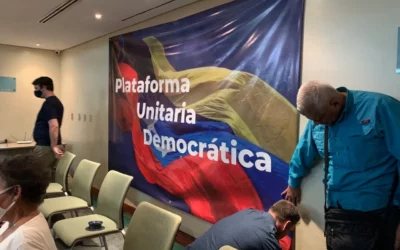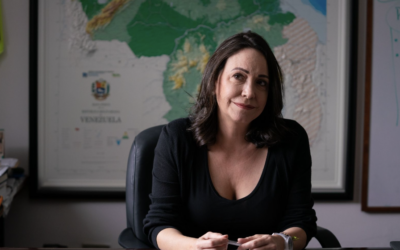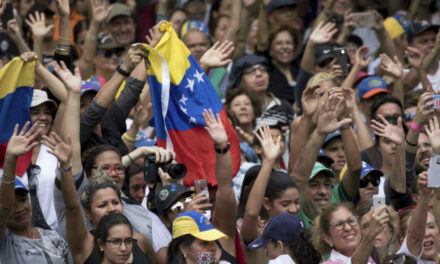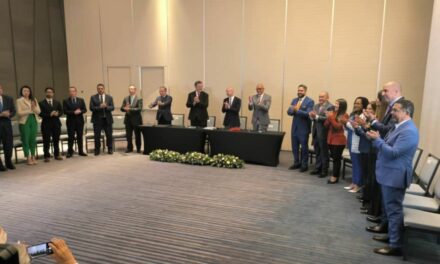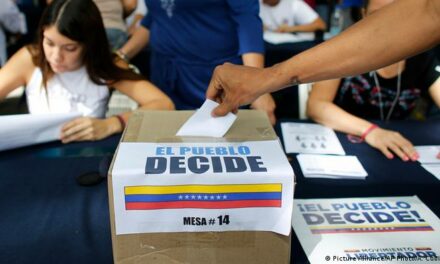Since 2005, politicians returned to the scene. Manuel Rosales rebuilt the opposition and restored trust in elections. Then it was the Mesa de la Unidad Democrática’s turn. That instance had clear rules for decision making and conflict resolution. With the MUD, it was Henrique Capriles Radonski’s moment as leader of the opposition for the 2012 and 2013 presidential elections.
However, Capriles Radonski left that scenario and in his absence Antonio Ledezma, Leopoldo López and María Corina Machado led the opposition to La Salida (The Exit).
The MUD regained control shortly thereafter. And with this control, the unitary strategy that helped win the absolute majority of seats in the National Assembly was achieved.
With no elections on the schedule after 2015, the MUD lost its raison and from then on, each leadership decided to try to impose their logic.
This led to the 2018 abstention and the stage of the Interim Government of Juan Guaidó (and Leopoldo López).
Four years later, María Corina Machado’s era began. The most recent public opinion poll carried out by the firm Delphos for 33% of Venezuelans, Machado is the leader of the opposition, followed by former presidential candidate Henrique Capriles Radonski who is seen as the leader by only 6.4% of Venezuelans. In this case, it is worth noting that in an open question to all respondents, up to 33% say that they do not identify any leader as the leader of the opposition.
However, it is worth highlighting that Machado replaced Juan Guaidó as leader of the opposition. In November 2022, Guaidó was seen as the leader of the opposition by 10.8% of citizens, while only 6% identified
Machado in this role. At his peak, April 2019, Guaidó was seen as the leader of the opposition by two-thirds of Venezuelans.
Meanwhile, when considering the opinion of citizens who call themselves opponents, Machado is seen as the leader of the opposition by 51.9% of the citizens who place themselves in this group.
According to Delphos, 11% of Venezuelans have a high to medium high chance of participating in the primary elections. When only considering the voting intention of the group with a high chance of attending the event, evidently Machado has the first option of chances of victory with a remote possibility of losing it. To date, 70% of respondents with a high chance of participating are planning to support the leader of Vente Venezuela.
When considering the opinion of respondents with a high and medium high chance, the scenario does not change significantly. 63% say they will support Machado, while 11.8% lean towards Capriles Radonski.
According to Delphos study, support for Machado is crosscutting to all age groups and socioeconomic levels, even in sectors with fewer resources.
However, even if Machado won the primary elections, she could not run against Maduro in the presidential elections because she has been politically disqualified for 15 years. To date, the only option for Machado -or any other disqualified candidate- to participate in the 2024 elections is limited to removing the restrictions against her through a negotiation with the Venezuelan regime.
Although the Unitary Platform conceived the primary elections as a mechanism to align the strategy for the 2024 presidential election and reduce the differences between the sectors that make up the opposition, María Corina Machado and her entourage understand the primary election as the option to finally lead the Venezuelan opposition.
For years, Machado represented the most radical sector of the opposition, and has disavowed electoral participation and attempts to negotiate with the government of Nicolás Maduro since they began in 2017.
Some of the unthinking positions she used to expose when she was far from reaching a position of control of the opposition have been moderated in recent months from advocating an ousting of the Venezuelan regime to urging Maduro to negotiate his ouster-after winning the primary elections- with her.
Her entourage stresses that winning the primary elections means building a political project with “everyone feeling that it is a common idea, a process that will not seek revenge or take its toll, but to look for spaces of consensus”.
Machado is very clear about the steps she will take once she wins the primary elections:
1) To unite the country around a process to ensure political change.
2) To contact the presidents of Mexico, Colombia and Argentina to mediate with Maduro on the need to allow an election with competitive conditions.
3) To define which conditions are essential for the competitiveness of the election. These conditions include her qualification.
4) To start a new stage of negotiations, which would have a relatively different position than the current one. Machado argues that the current leadership and its representation at the negotiating table in Mexico lacks legitimacy. In this regard, her team proposes the need to redefine the negotiation to address a new political coordination, legitimized by the primary elections.
Regarding the resumption of negotiations, it is worth noting that Vente Venezuela has remained outside the Unitary Platform. In fact, their position was to reject the negotiation in Mexico. By winning the primary elections, the Unitary Platform will have no clear arguments to exclude her from playing a determining, or even predominant, role in the negotiation process.
However, Machado’s position in the polls represents a danger for the opposition coordination. Defeating the Venezuelan state in the 2024 presidential elections requires the opposition commitment to work in unity under an umbrella strategy of the majority of its leaders. However, neither Machado nor her entourage today perceive that they need others to defeat Maduro. It is just the opposite. For Machado, the current political and electoral structure of the opposition is a burden in her strategy to achieve Maduro’s ouster.
In this regard, Machado will try to displace the existing actors, or at most give them a symbolic role in her strategy of coordinating the opposition. This is a very similar vision with which Juan Guaidó, Carlos Vecchio and Leopoldo López permeated the Interim Government.
No consensus
In view of the uncertainty of the strategy of the political route to be taken by the opposition if the winner of the primary elections is disqualified, some leaders have suggested that Machado, Capriles Radonski and Freddy Superlano should withdraw from the race.
Machado has rejected such proposal. “What is behind that argument? Let the regime choose, let Maduro choose the candidate who he wants to face off against. Because then, if Maduro disqualifies all the candidates that he does not like, the only candidate that will not be disqualified is the one that suits Maduro. That is the thesis of those who are defeated by those who are not willing to defend what the people want.”
In fact, Machado assures that she will “force” the National Electoral Council to accept her presidential candidacy.
From Machado’s perspective, winning the primary elections will give her the legitimacy she needs to impose her vision, including not accepting that her candidacy be replaced by that of a leader who is not disqualified.
“Do you think the country is going to accept that Venezuelans elect the candidate they trust and then he goes and handpicks the candidate that Maduro wants? That is inconceivable, that is defeat. This struggle that is coming now is on the terms and rules of democracy and citizenship, not on the terms of tyranny. That’s where it all changes,” she insistently said.
This vision has been recently questioned by Governor Manuel Rosales, claiming: “Just because someone has more votes doesn’t mean that he is the owner of the opposition.”
Artículos destacados
Machado plantea esperar a la relegitimación de la oposición antes de reanudar las negociaciones con Maduro
María Corina Machado: “No creo que México sea la mesa efectiva por muchas razones -explicó Machado- Primero porque la gente no se siente representada por los que están sentados en esa mesa en su nombre, y esa es una de las razones por las que se necesitan con tanta urgencia la primaria. Necesitamos una dirigencia legítima que cuente con el apoyo del pueblo venezolano, y el pueblo venezolano sentado en la mesa significaría una amenaza creíble para el régimen”.
María Corina Machado descarta negociar con otros aspirantes la candidatura presidencial
María Corina Machado : “Aquí nadie va a aceptar ningún consenso alrededor de nadie. Que no se les ocurra planteármelo, porque aquí quien tiene que decidir es el pueblo de Venezuela»
Contraloría puede inhabilitar a todos los candidatos de la Plataforma Unitaria
Los argumentos de la Contraloría General de la República para justificar la inhabilitación administrativa en contra de María Corina Machado ponen en peligro a la casi totalidad de aspirantes a presidente que hacen vida dentro de la Plataforma Unitaria y abre la posibilidad a que la oposición abandone la ruta electoral en 2024.
Los argumentos políticos utilizados en contra de Machado pueden aplicarse sin restricciones a todos los integrantes de la Asamblea Nacional 2015, y a las personas que integraron, trabajaron o colaboraron con el gobierno interino de Juan Guaidó
La elección presidencial debería ser en diciembre, pero…
La legislación electoral venezolana no establece taxativamente lapsos legales específicos para la ejecución de las actividades técnicas y políticas necesarias para organizar una elección. En esencia, el tiempo que se dedica a cada fase del proceso es definida...
Venezolanos en el extranjero siguen impedidos de votar en la elección presidencial de 2024
Apenas 107 mil venezolanos en el extranjero están habilitados para votar en las elecciones presidenciales de 2024. Un número que contrasta abiertamente con los datos de La Plataforma de Coordinación Interagencial para Refugiados y Migrantes que calcula -en función de...
Venezuela es el único país de la región que no tiene fecha para su elección presidencial
Durante 2024 se celebrarán elecciones en 75 países. Los eventos van desde comicios generales en la que se elige a los integrantes de los poderes Ejecutivo y Legislativo, hasta elecciones subnacionales. En la región se celebrará elecciones presidenciales en El Salvador...
Flexibilización de sanciones le garantizan a Maduro tres mil millones de dólares
Las amplias licencias aprobadas por el gobierno de EE. UU., que limitan las sanciones impuestas a Venezuela a cambio de concesiones políticas y electorales para la elección presidencial de 2024, modificarán significativamente el escenario económico del país. Las...
Machado plantea esperar a la relegitimación de la oposición antes de reanudar las negociaciones con Maduro
María Corina Machado: “No creo que México sea la mesa efectiva por muchas razones -explicó Machado- Primero porque la gente no se siente representada por los que están sentados en esa mesa en su nombre, y esa es una de las razones por las que se necesitan con tanta urgencia la primaria. Necesitamos una dirigencia legítima que cuente con el apoyo del pueblo venezolano, y el pueblo venezolano sentado en la mesa significaría una amenaza creíble para el régimen”.
María Corina Machado descarta negociar con otros aspirantes la candidatura presidencial
María Corina Machado : “Aquí nadie va a aceptar ningún consenso alrededor de nadie. Que no se les ocurra planteármelo, porque aquí quien tiene que decidir es el pueblo de Venezuela»
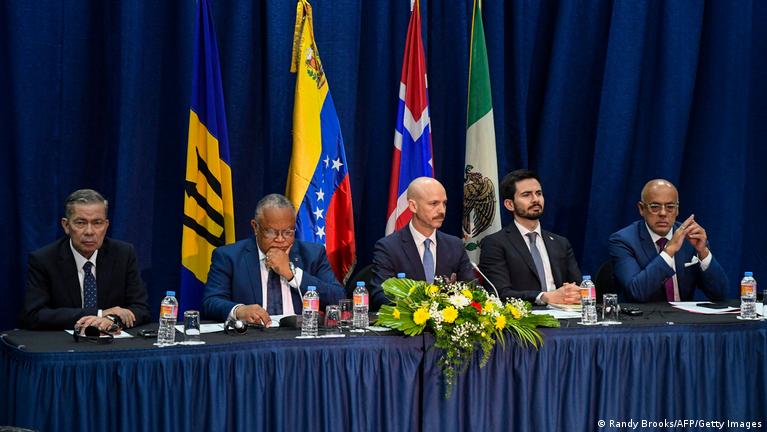
La elección presidencial debería ser en diciembre, pero…
La legislación electoral venezolana no establece taxativamente lapsos legales específicos para la ejecución de las actividades técnicas y políticas necesarias para organizar una elección. En esencia, el tiempo que se dedica a cada fase del proceso es definida discrecionalmente por los rectores del Consejo Nacional Electoral (CNE) incluyendo la facultad de establecer arbitrariamente la fecha de las elecciones. No obstante, no siempre fue así. Hasta el año 2009, la ley electoral venezolana fijaba un lapso dentro del cual el CNE debía establecer las fechas de convocatoria y de votación para cada proceso electoral. En 2009 la Asamblea Nacional derogó la Ley Orgánica del Sufragio y Participación Política, que se había mantenido vigente, aunque con varias modificaciones, desde 1997. En el artículo 152 de la referida Ley se establecía: “El Consejo Nacional Electoral fijará con seis (6) meses de anticipación por lo menos, y mediante convocatoria que deberá publicarse en la Gaceta Oficial de...
